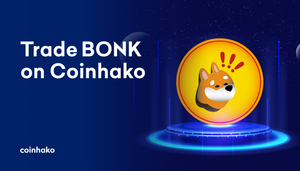Cryptocurrencies have taken centre stage in news headlines this year. Hotly debated by many, the speculation surrounding cryptocurrencies has eclipsed the revolutionary impact of blockchain technology— the driving force of many Cryptocurrencies.
By definition, blockchain is essentially a digital ledger of transactions that is duplicated and distributed across the entire network of computer systems. Think of it as an advanced spreadsheet designed to store and access limited amounts of information.
While cryptocurrencies are still finding their footing in society, blockchain is an undeniable game changer with use cases ranging not only for finance but also healthcare, music, creative industry and many more.
Though it is overshadowed by the hype around cryptocurrencies, blockchain is just as fascinating to learn about. Here are some blockchain buzzwords you need to know.
1. Cryptography
Cryptography is the mathematical process of encoding and decoding data so that any possible random observers are unable to understand the message being sent, thus protecting the information.
The prefix "crypt-" means "hidden" — in this context, anonymous — and the cryptography aspect is the backbone of cryptocurrency processing as it ensures that information sent out is secure. The leading cryptocurrency, Bitcoin, uses 3 different cryptographic methods to confirm ownership and create addresses available for use.
2. Transaction Hash
A BTC visualiser: Example of a Hash
Transaction Hash also known as Transaction ID (TxID), is an identifier used to identify a unique and specific transaction. The hash is composed of a random set of alphanumeric characters. All on-chain transactions are given a unique TxID which can be found in transaction details.
3. Consensus
Every blockchain network is made up of an interconnected web of nodes. Nodes are computers that are connected to a network, and participate in the network by validating transactions.
In order for a transaction to be verified on the blockchain, the network must achieve consensus -
the process of getting all the nodes in the network to reach an agreement.his prevents tampering and eliminates any risk of duplicate entry or even fraud. The algorithm ensures that the next block in a blockchain is the only true version, which guarantees the stability of the system.
There are many types of consensus but the two most talked about are: Proof of Work used by Bitcoin, and Proof of Stake used by Cardano (ADA) and Polkadot (DOT).
4. Mining
Mining is the process of having computers collate, record, verify transactions and add them to a blockchain. Mining can be thought of as transactions being recorded on a bank ledger, the difference is that its transactions are available for public viewing.
Fact: Not every cryptocurrency requires mining.
5. Proof of Work (POW)
The POW protocol’s main goal is to prevent cyber attacks like distributed denial-of-service attack (DDoS) which has the purpose of exhausting the resources of a computer system by sending multiple fake requests. The concept existed way before Bitcoin.
Under Proof of work, all miners would be required to solve cryptographically hard puzzles using their computational resources and the winner would be whoever is able to solve it the fastest.
6. Proof of Stake (POS)
For POS, instead of miners there are validators. Validators lock up some of their tokens as a stake in the ecosystem. Following that, the validators bet on the blocks that they feel will be added next to the chain. When the block gets added, the validators get a block reward in proportion to their stake.
7. DeFi
DeFi stands for Decentralised Finance. Decentralisation basically means that there are no central authorities or intermediaries involved, and the network is powered smart contracts.It DeFirefers to financial applications and services that are accessible to anyone, enabled by the blockchain networks and geared to eliminate intermediaries from any centralized authorities.
Ethereum is arguably the birthplace of DeFi, as most Decentralised applications (dApp) that call themselves “DeFi” are built on top of Ethereum. In 2020, the DeFi ecosystem accounted for 95% of all transaction volume on Ethereum.
However, there are many other alternative DeFi ecosystems. One example is QuickSwap which is powered by the Matic Network.
8. Smart Contract
Smart Contract refers to contracts whose terms are coded using a computer language instead of legal language. This allows trusted transactions and agreements to be carried without the need for any central authority as the contract defines the agreement and is self-executing.
9. P2P
Peer-to-peer (P2P) refers to the decentralized interactions that happen between at least two parties in a highly interconnected network. P2P participants deal directly with each other through a single mediation point, mitigating the need for an intermediary.
10. Forks
A fork is an event that results in the separation of any one (or possibly more) cryptocurrency. During a fork, a network can be split into 2,3 or more separate Cryptocurrency entities, depending on the circumstances.
The most commonly seen type of Fork occurs when a proposed upgrade to a Cryptocurrency does not reach a 100% agreement from the community. Bitcoin Cash is considered a Hard Fork of Bitcoin.
📩 Sign-up to Subscribe to our mailing list to have them delivered straight to your inbox!
👉Join our Telegram community
🤔If you have any enquiries, you may contact us here or you can visit our Information Page.
Coinhako is available in these countries!
🚀 Buy Bitcoin at Coinhako Singapore
🚀 Mua Bitcoin Coinhako Vietnam
Copyright © Coinhako 2021 All Rights Reserved. Read more on our terms of use of this blog.
All opinions expressed here by Coinhako.com are intended for educational purposes, taken from the research and experiences of the writers of the platform, and should not be taken as investment or financial advice.






